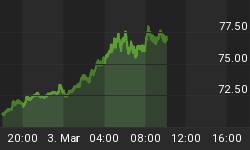In today’s monetary policy meeting, the ECB Postponed Further Debate on Extending QE.
ECB president Mario Draghi claims economic data do not justify a move to prolong bond buying, the risk of deflation is low, and the existing monetary policy is "fully effective".
Hallelujah!
Mario Draghi said the European Central Bank did not even discuss extending its €80bn a month asset purchase programme after concluding that a slight downgrade to its economic forecasts was "not so substantial to warrant a decision to act".
The ECB kept interest rates on hold and reiterated it would continue its €80bn a month asset purchasing programme until "at least" next March, as it sought to balance lacklustre economic growth against the drawbacks of further monetary policy loosening.
The ECB’s governing council, meeting on Thursday in Frankfurt, left its benchmark main refinancing rate at zero. The deposit rate remains at minus 0.4 per cent.
Asked why the bank had not announced more action to tackle low growth and inflation — which the ECB now forecasts to be respectively 1.7 per cent and 0.2 per cent this year — he said the existing monetary policy stance was "fully effective" and there was no increased risk of deflation.
Repeating its previous language on the issue, the ECB said in its statement that it was prepared to extend its bond buying beyond March "if necessary and in any case until it sees a sustained adjustment in the path of inflation consistent with its inflation aim".
"There is no question about the will to act, the capability to act and the ability to do so," he said.
A scarcity of bonds that fall within the ECB’s rules means any extension of the programme would probably need to be coupled with a change in QE’s design. Mr Draghi himself acknowledged on Thursday that lower interest rates had "clearly restricted" the range of assets that the central bank could buy.
The biggest changes would involve buying more expensive bonds — raising the threat of losses by the central bank — or switching to a system where the bonds of more highly indebted countries could be bought in more substantial quantities.
Neither move would be without controversy and either could revive spats between the council’s hawks, led by Bundesbank president Jens Weidmann, and the ECB’s top officials, such as Mr Draghi.
Fully Effective Policy in Pictures

Europe’s QE Quandary
Bloomberg writer Jana Randow explains Europe’s QE Quandary nicely except for one ridiculous statement "For the Germans, it’s a matter of principle, even though deflation, or a fall in prices, has been a bigger threat than inflation."
Asset Deflation Not CPI Deflation!
Price deflation is an imagined problem. The real problem is asset price deflation fueled by economic bubbles in the fight against routine price deflation.
The BIS agrees with my statement.
I advise Randow or anyone who thinks price deflation is a problem to read and digest Historical Perspective on CPI Deflations: How Damaging are They?
The ECB’s quandary of how to extend QE and stay within rules is a self-imposed illusion.

















